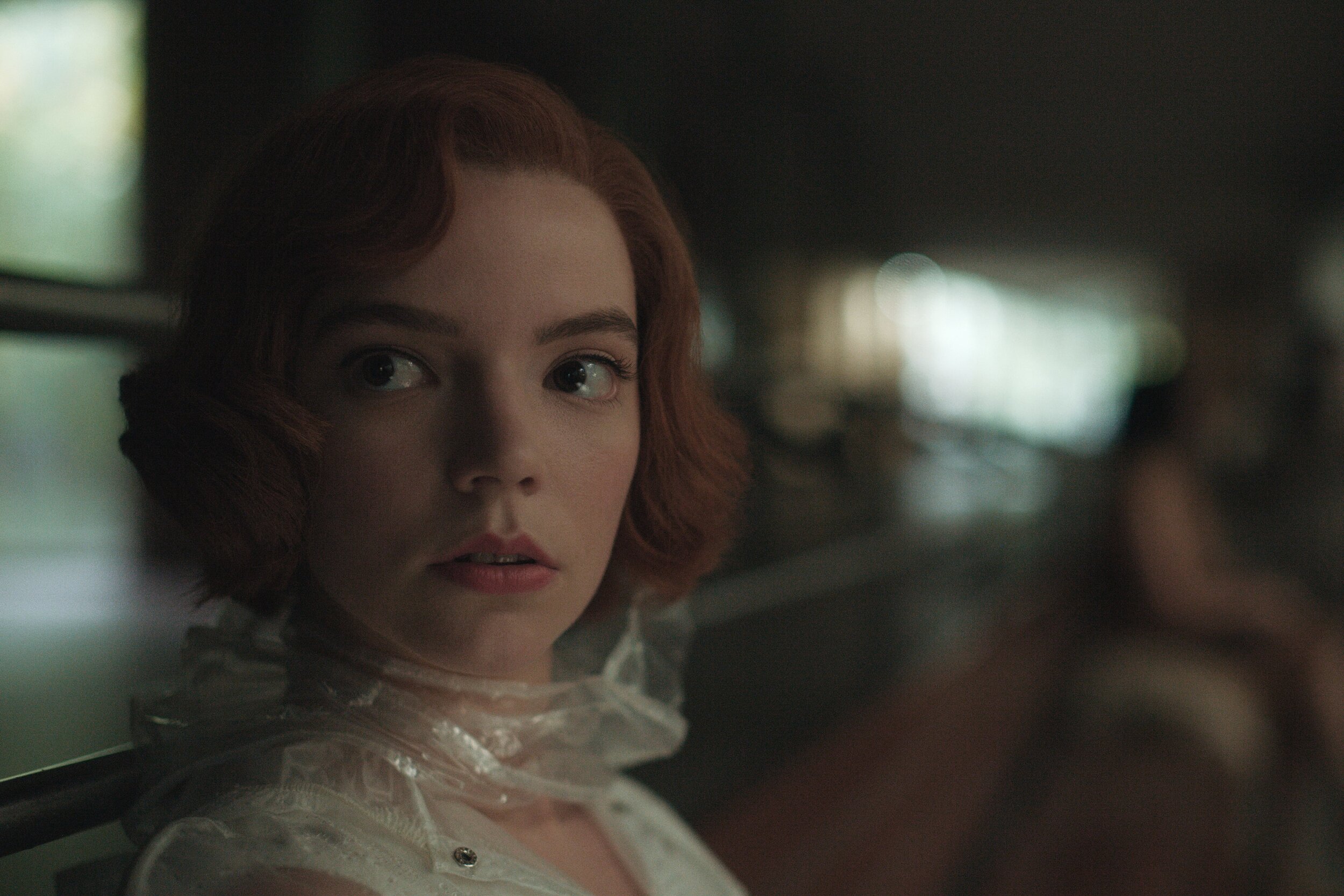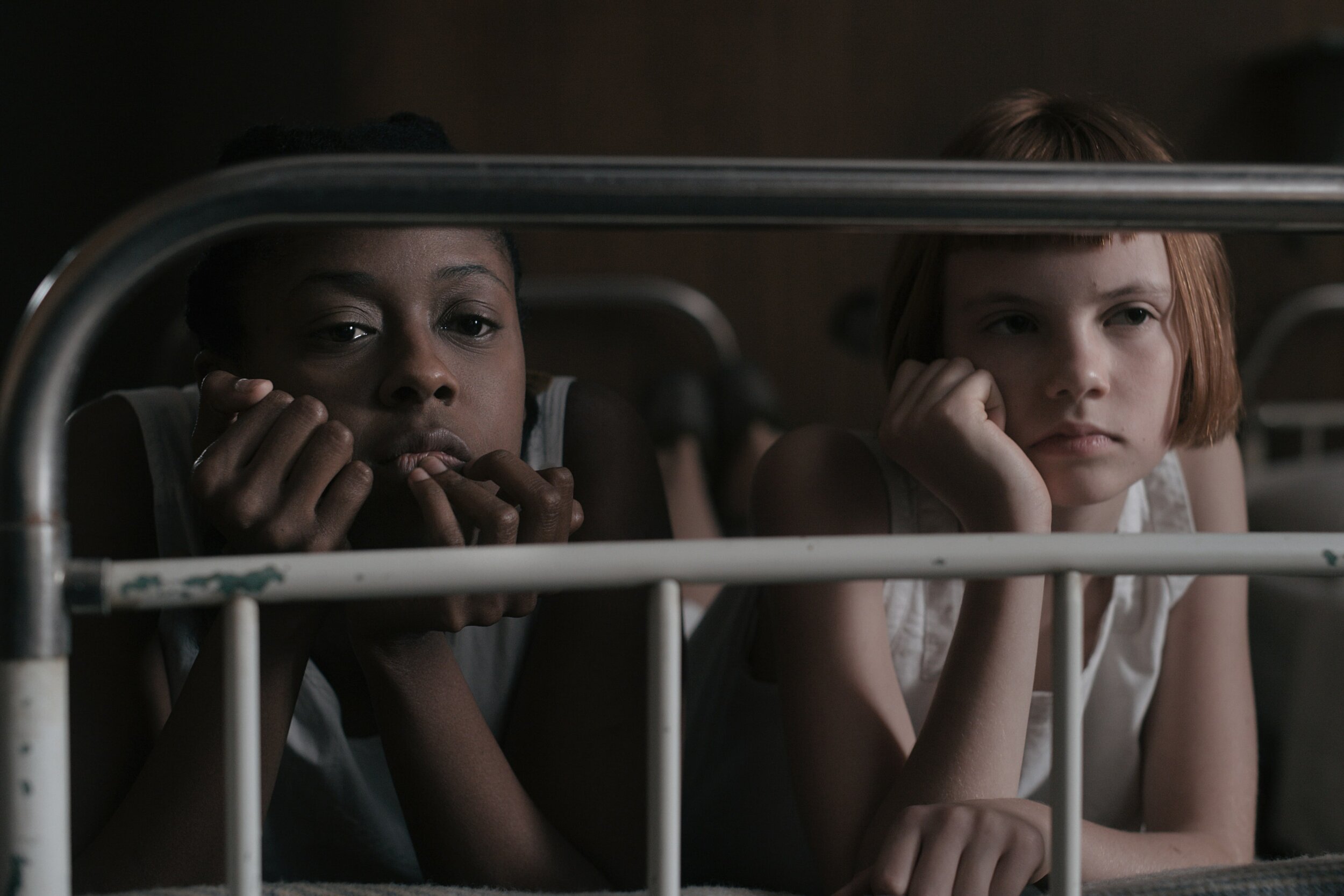The Queens Gambit - Is love enough ?
ANYA TAYLOR_JOY as BETH HARMON Photo Credit. NETFLIX 2020
Resembling a secret love affair I devoured every moment without a second thought, only afterwards thinking about potential consequences.
The celebrated Netflix mini-series ‘The Queens Gambit’ has everything you wish for in light entertainment. A masterclass in all elements needed for compulsive viewing, a highly stylised, visually stimulating and produced piece of television that captivated me and 62 million others, offering something for everyone. A fashionable orphaned child genius overcomes tragedy and addiction, becoming world-class in a sexist sport by beating men at their own game.... what's not to like?
In appealing to the masses, the messiness of alcoholism, addiction and recovery felt replaced by an episode including a rebellious makeover and a missed chess game. So engrossed in the story, and only on reflection; I explore the realities of addiction versus what it takes for a show to be popular, being such a complex condition I question if it’s futile to expect both.
'Child Of', is an art project where I explore alcoholism and addiction in a creative and contemporary way, centred around storytelling and visually sharing experiences to raise awareness and help those feeling trapped. Have you ever wondered why some children living within a house of addiction excel and others end up repeating their parents' behaviour? I interview recovering addicts and adults from those touched by family alcoholism, to shed light on a global problem.
ANYA TAYLOR_JOY as BETH HARMON & MOSES INGRAM as JOLENE Photo Credit. NETFLIX 2020
I'm especially interested in those who have retreated, during childhood, into creativity or an activity to escape yet made successful careers for themselves using the same skills. The central character in The Queens Gambit is based around the very person I'm researching; you can imagine how I lapped it up, consuming the series in a couple of days. It was compelling viewing and discussed throughout our household. My 18-year-old son watched it before my husband, and I even realised it 'was a thing'. We talked about her plight, which opened up the conversation surrounding prescription drugs, self-medication, alcoholism, abandonment, sexism, determination, focus ... the list goes on. Can you imagine the thousands of similar conversations being had around the world ? On one hand it’s encouraging, my concern is someone with less experience in the difficulties of addiction might think recovery is a breeze, I watched my Dad struggle his whole life with alcoholism, it’s anything but easy.
Photo Credit PHIL BRAY/NETFLIX
Beth Harmon ( Played by Anya Taylor-Joy ) recoiled like a spherical armadillo, perfectly protected by her hardened exterior. Unusual, beautiful and touched by genius. An orphaned child of an addict displaced and abandoned, she rolls through life, avoiding pain with the help of tranquilisers and alcohol while cultivating her genius skills to establish a career in the male-dominated world of chess. Despite a tragic childhood, her character has an air of inner confidence and leaves no doubt of her self belief and ultimate destination. Apart from self-medication and a hardened shell, she showed no signs of low self-esteem, shame or guilt, synonymous with many children who've had similar experiences. It's easier to connect with a less messy Beth written for mass consumption, but let’s face it, we got what we want.
ANYA TAYLOR_JOY as BETH HARMON Photo Credit. KEN WORONER / NETFLIX 2020
It took Allan Scott 30 years, nine rewrites, and a shift from film to mini-series to realise his vision. The film's closest to being made was in collaboration with Heath Ledger directing. The brilliant actor and child prodigy of chess in his native Australia, he shared Scott’s passion; tragically prescription drugs took his life with an overdose before any meaningful development. A cruel and dark twist to the project.
A glammed up and dumbed-down portrayal of addiction makes it palatable for the masses, it opens up a well-needed conversation so does that make it ok?
Not having read the original book by Walter Trevis I had no idea Beth's character was in such contrast to one I admired on screen. Sarah Millar, writer for The New Yorker, highlights despite the similarities between the two versions the central tension of the novel was lost by Anya Taylor-Joy being too good looking.
'We know that Beth is unattractive because it is written down. It is one of the first things we find out about her, right after she arrives at Methuen. "You are the ugliest white girl ever. Your nose is ugly and your face is ugly and your skin is like sandpaper. You white trash cracker bitch," her bully and future friend Jolene declares."
Millar goes on to say that throughout the book you're left guessing whether 'ugly’ Beth would make it, whereas the new and improved Beth left no doubt. A perfect formula for a series to go viral, would it have been shared so much if not so aesthetically pleasing? Countless recovery programs have used the series to engage with people seeking information about their own struggles...so despite being unrealistic in the portrayal of addiction it's serving a purpose.
Photo Credit PHIL BRAY/NETFLIX
Author of 'The man who fell to earth' and 'The Hustler', Walter Trevis, also the son of an alcoholic, was a prolific writer who relives his childhood hospitalisation which encouraged tranquillisers, alcoholism and love of chess vicariously through his fictional female protagonist. Choosing to stop at numerous suicide attempts and years battling in recovery her story ends on the high as a young woman quickly defeating demons with a profound realisation she doesn't need drugs to achieve success.
But is this point pushed enough? The romanticism of alcohol and drugs being fundamental to the creative process or in this case genius is both damaging and a misconception.
“From the beginning, her brilliance at the game is presented as intrinsically connected to her use of substances, spreading a dangerous and flawed representation of the link between drugs and genius. ”
American author, Lilly Dancyger , also a child of an addict illustrates this point by sharing her father's belief of needing heroin to make his art. Acknowledging it may be too much to ask a stylised one season show to dispel the myth, she feels the writers could have done more.
"There's a missed opportunity to show Beth reclaim her own genius, doing the hard and rewarding work of disentangling it from her addiction." Lilly Dancyger
Lilly has written a book called Negative space, to be released in May, an insight into her fathers life and her relationship with him.
I have nothing but admiration for the creativity, storytelling and talent displayed in every second of a beautiful and engaging series. With the power of art and creativity being an undeniable force in spreading a message, coupled with a herculean platform such as Netflix I hope a global conversation has begun. Digging deeper into a problem that ricochets through generations and drags societies to their knees, I hope people who are struggling feel inspired to ask for help and our language starts to change around the glamorisation of addiction, an optimistic thought I know.
Ultimately this adaptation of The Queens Gambit achieved precisely what it set out to do, It has proved itself another pill in a global need for escapism; we're all waiting for our next fix.
Photo Credit PHIL BRAY/NETFLIX





